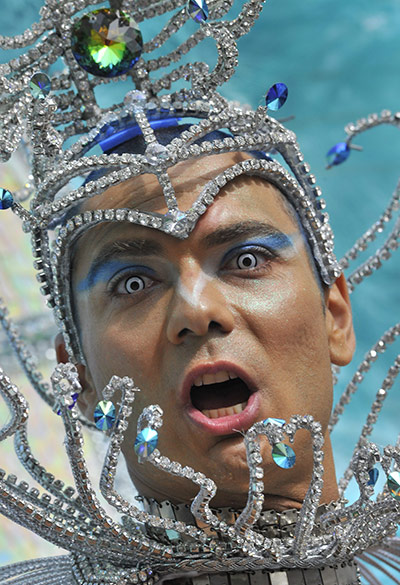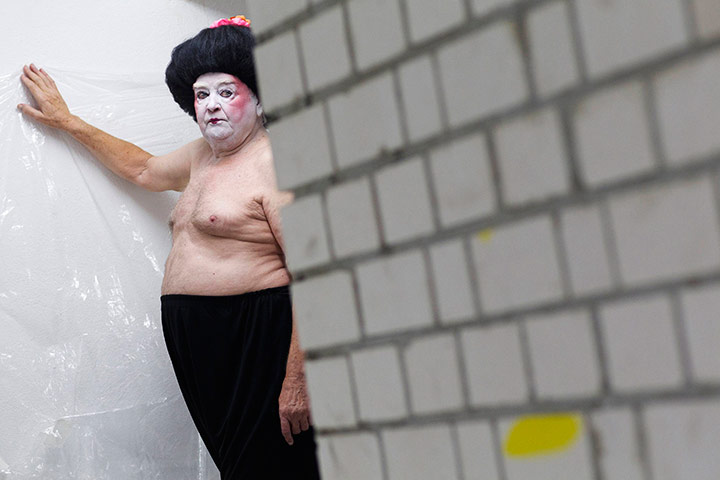One of the most basic distinctions in human social consciousness is between being on stage or off stage. We understand, for example, that staged performances might be somewhat larger than life or a bit over the top.
Not your typical get up for a job interview at the firm, is it? This performer at the Notting Hill carnival in the UK might have a regular job–looks like he could be in finance, if you ask me–but here he’s way too gorgeous for the nine-to-five. The elaborate, gender-bending theatricality screams play rather than work, not to mention carnival’s imaginative, ritualized inversion of the standard social order. But the change is only temporary: it is understood that the play ends on time, that the performers take off their costumes, and that everyone returns to their usual routines.
But, of course, the usual routines are staged as well, and both the job interview and the job itself require being on stage, playing one’s role, following the script. If your co-workers were on a continual carnival, the work wouldn’t get done and you’d all be out on the street, which is an even tougher act. So it is that we come to treasure those places and times when we can be off stage–back in our apartment or out in the garden or walking along the beach or wherever it might be that we can take off the mask and “just be myself.” But often it’s not that simple.
If I had to pick one image to represent the human condition, this might be it. We are back stage, yet both in and out of role. He still wears the mask that is so much a part of his performative self, but instead of the rest of the costume we see his soft, aging, vulnerable flesh. This is the human being: at once irrevocably both natural and social, typified and unique, locked up in silence and yet profoundly communicative.
The photograph is from the Gay Not Gray fashion show in Berlin. The point of the show is “that being gay and old can be fun and does not have to mean isolation.” OK, and I’m all for that. In fact, let me be clear: my point is not that we should feel sorry for this person or any group of people. The individual may be happy or sad, but the photograph is not about the single person. (He has the same expression in three other photos, one on stage and two backstage, so he may simply be staying in role for all of them.) I see a real artist: one who has given us a moment of acute vulnerability and honesty that goes far beyond the theme of the fashion show.
Of course, the first photo is also a portrait of human being. (I think he looks like he breathes chlorine, but it doesn’t hurt to see ourselves as aliens.) Nor would I want to live in a world of relentless vulnerability and honesty, and fortunately life can include being young and healthy and enjoying our performative needs. That’s the easy part, however, and so there is reason to be thankful when we are given a deeper look into our real selves.
Photographs by Toby Melville/Reuters and Thomas Peter/Reuters.
Cross-posted at BAGnewsNotes.


Discussion